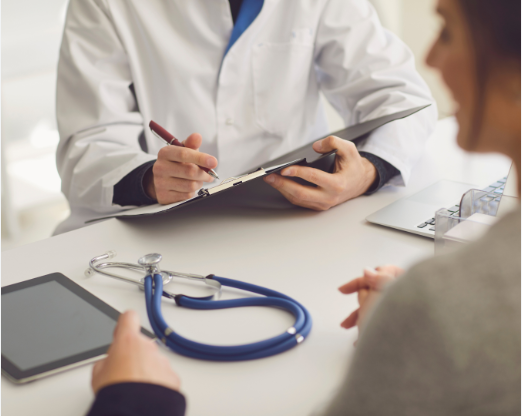People usually think of joint replacements, broken bones, or sports injuries when they hear the word "orthopedic care." Orthopedic health in women, on the other hand, has its own problems that need a more advanced approach. Differences in biology, hormones, and lifestyle can affect how musculoskeletal problems happen and are handled in women. To improve care and results, it's important to understand these special factors.
How Orthopedic Problems Are Different for Men and Women
Because of differences in anatomy and hormones, women and men experience orthopedic conditions in different ways. Compared to men, women usually have a wider pelvis, a different knee alignment, and less muscle mass. All of these things can affect the health of your bones and joints. Also, changes in estrogen levels, especially during menopause, can make bones weaker and raise the risk of osteoporosis, a disease that affects women much more often.
Both men and women can get arthritis, tendinitis, or back pain, but studies show that women may have more ongoing pain and are more likely to get conditions like
- Osteoporosis
- Hip fractures
- Patellofemoral pain syndrome
- Rheumatoid arthritis
These differences highlight the need for specialized care that considers gender-specific risk factors.
Osteoporosis: A Major Concern for Women
Osteoporosis is probably the most well-known bone disease that affects women. It makes bones weak and brittle, which raises the risk of breaking them, especially in the hip, spine, and wrist. Studies around the world show that women are four times more likely than men to get osteoporosis, and this is especially true after menopause.
Osteoporosis can be managed and avoided by getting screened early, eating foods high in calcium and vitamin D, doing weight-bearing exercise regularly, and taking medicine as needed. Consulting skilled Orthopedic Doctors in Kolkata can help with early diagnosis and preparations for long-term bone health.
Joint and Ligament Issues in Women
When it comes to ligament injuries, especially ACL (anterior cruciate ligament) tears, women are more likely to be hurt than men. This is partly because of differences in anatomy, changes in hormones, and the way bodies move. For example, female athletes are more likely than male players to hurt their ACLs.
When women get osteoarthritis, it tends to get worse faster, especially in the knees and hands. Managing pain, physical training, and sometimes surgery are important parts of recovery. That's why skilled orthopedic surgeons in South 24 Parganas are so important—they offer surgical and non-surgical treatments that are specifically made for women.
Musculoskeletal Changes After Menopause
Many women feel stiffer, have more joint pain, and can't move around as much after menopause. People may think these signs are signs of getting older, but they are usually caused by low estrogen levels, which affect bone structure and joint lubrication. Hormone therapy, physical therapy, and changes to your lifestyle can help ease these symptoms if you get help from a trained orthopedic expert.
Taking a Holistic Approach
Modern medical care is looking at women's health in a more complete way. Many orthopedic doctors in Kolkata and across India are not just treating injuries on their own, but are also including diet, physical therapy, and prevention care in their treatment plans. Understanding how stress, lifestyle, and hormones affect you can help you get better results that last longer.
Women should not ignore persistent joint pain, fatigue, or changes in mobility. Early care is very important for keeping your health in good shape over time and avoiding more painful procedures in the future.
Whether it's managing osteoporosis, preventing sports injuries, or navigating post-menopausal changes, personalized care is essential. Expert Orthopedic Surgeons in South 24 Parganas are well-equipped to address these specific needs, empowering women to stay active, healthy, and pain-free throughout their lives.





Comments